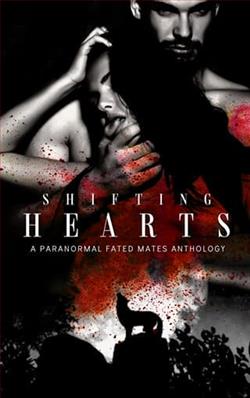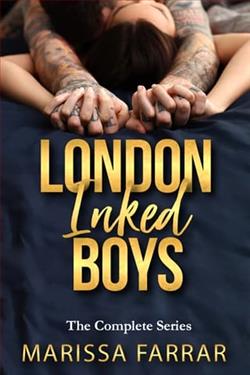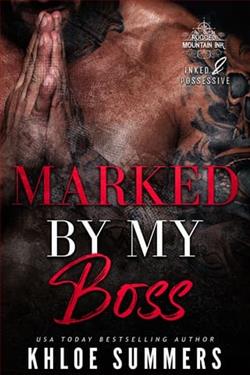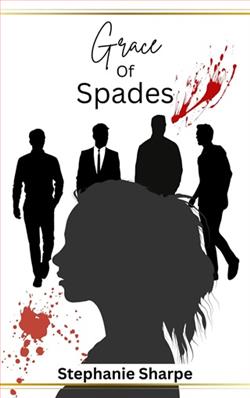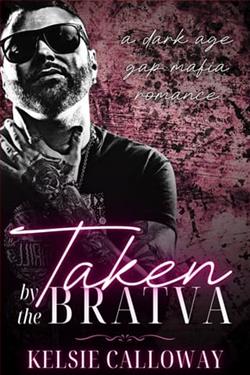Page 48 of Bad Moon Rising (Pine Deep 3)
Vic sighed. He hated the fact that every jackass in this goddamned town loved to throw pop-culture references around as if it made them cool. Even recruits like Golub. Vic would love to just push the plunger and nuke the whole frigging lot of them. Fanboy assholes. “What did they do?” he asked, though he thought he already knew.
“Well…they kind of ate her. ”
“Shit. ”
“There’s not enough left to recruit. Tore her arms off, tore her…”
“All right, all right. Son of a bitch. ” He rubbed his eyes. “Put McVey on. ”
There was a rustle and then McVey spoke. “Hey, boss, sorry for the screwup. ” Unlike Golub, who could pass, McVey was a different species of vampire and his teeth had already grown so huge that his voice was muffled by trying to talk around them. Worse than Ruger.
“Where are those assholes now?”
“Dave and I quieted them down, got them sitting in the woods just off the road. We had to cuff them together around a tree. ”
“How bad’s the mess?”
“Bad enough, but Dave and I both brought cleanup stuff in our car, like you told us to. ”
“I don’t like hearing that you let this get out of hand. ” Silence on the other end of the phone. “You understand me?”
“Sure,” McVey said, his voice thick. “But…those Dead Heads are pretty hard to handle. Won’t listen, and sometimes they just go off, y’know? They don’t even drink, not the right way—all they want to do is eat. I’m not even sure they can think, let along take orders—”
“You think you just called 1-800-IGiveAShit? Just clean it up and make damn sure you don’t put a foot wrong again. I don’t want to have to tell you a second time. ”
“Yes, sir,” McVey said. The “sir” was a suck-up gambit, but Vic liked it.
“One more thing. Get some body bags and pop a cap in two useless meatheads. Headshots only, and use sound-suppressors. Then bury ’em somewhere quiet. Spread the word about it, too. You step outside of the Plan, you die. Even Dead Heads should be able to process that. ” He hung up.
“Shit!” he growled and very nearly hurled his cell phone against the wall.
Chapter 17
1
Val was discharged the next morning and Crow took her home. His home, not hers.
The nurses wheeled her to the front door and she rode in a brooding silence, the cane lying across her thighs, her face stony and set. Crow walked beside her, holding one hand, and as the automatic doors opened before them he jerked them all to a halt. The parking lot was packed with reporters who surged forward to stick microphones in Val’s face as cameramen jostled each other for the best shot. Crow was only marginally relieved to see that Newton was not among them. There were cops there, too, but none of them were engaged in any visible crowd control. Scanning the crowd, Crow saw Polk leaning against a patrol car, legs crossed at the ankles, arms folded across his chest, a shit-eating grin on his face. When Crow shot him a look of pure loathing, Polk responded by giving him a nasty wink.
Prick, Crow thought, and filed that away for future consideration.
As the questions thundered around them, overlapping into a rumbling blur of meaningless words, Crow turned and bent to Val and whispered, “Don’t say anything. Let’s just push through. ”
The glasses hid her eyes but there was as much hurt in the set of her jaw as there was offense and anger. Crow helped her out of the wheelchair and put one strong arm around her and used the other to push his way through the crowd. Both of them staring stolidly ahead, they headed toward Crow’s car, Missy. Every reporter tried to be the one to break Val’s silence, and over and over again one would shout a provocative question like, “How do you feel about your brother being killed?” or “Are you devastated now that you’ve lost your whole family?” All designed to gouge a comment out of her, but she bit down on her rage and clutched Crow’s supporting arm like a vise and they eventually got to Crow’s car. Even then, even when they were inside and buckled up, with the car in gear and rolling slowly, the reporters knocked on the glass, even tried the door handles, shouting as loud as they could to be heard and to get through to her. Most people crack; most people get mad and shout, or dissolve into tears, all of which makes for great vidcaps; but Val was Val—she wore her grief like armor and carried her rage like a shield, and she endured it.
More than a dozen film crews followed her out of the parking lot, the news teams scrambling like fighter pilots during an air raid, screeching into turns and pursuing them as Polk and his cronies just watched. Crow didn’t try to lose them, didn’t race down the streets. That would be theater, too, and he didn’t want to give them anything. Beside him Val was a statue, looking neither left nor right, just staring out of the window as the blocks rolled past and the circus followed.
When he pulled up to the Crow’s Nest, the news crews double-parked and hustled out to make another run at a sound bite. Again Crow had to shove past them, and again neither he nor Val said a word or even made eye contact with them. They wrestled their way to the front door of the store; Crow unlocked it and ushered Val inside. When some reporters tried to barge in with them, Crow closed the door on them. Slowly, but with force, pushing them back inch by reluctant inch, then turning the locks. Without a pause he and Val went straight through the store, past the counter, through the rear door that opened into Crow’s apartment. He closed and locked that, too.
“The phone,” she said. They were the first words she’d spoken since the hospital. Crow went over to the phone and switched the ringer off. He drew the blinds on the back windows, made sure the back door was locked, and when he turned around Val was gone. He went quickly into the bedroom and found her sitting on the edge of the bed.
It was only then that she started to cry, and she cried for a long time.
2
“Where are you, Sport?”
Ruger took a cold cigarette from between even colder lips. “I’m at Carby’s place. ”










